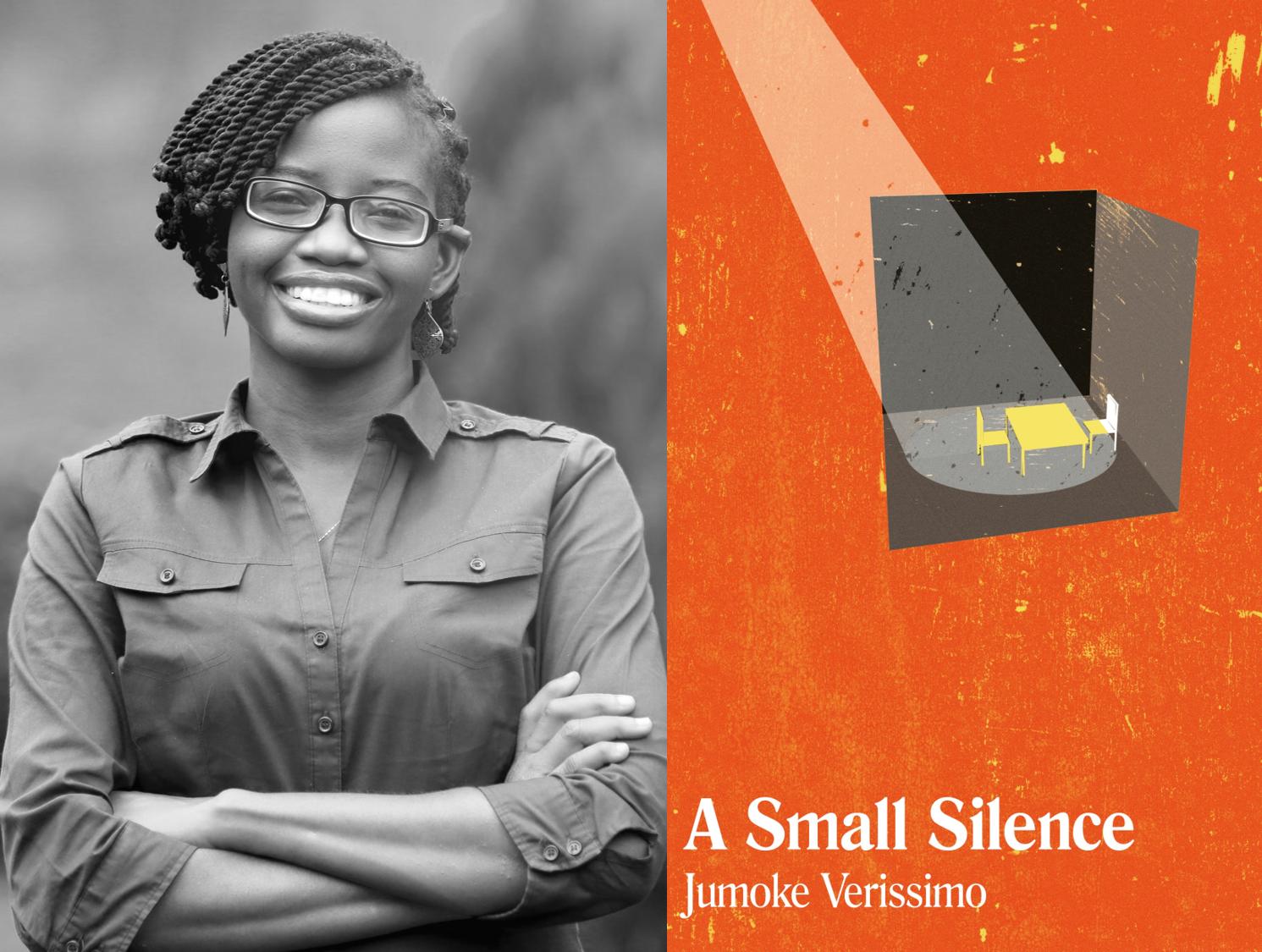I enjoyed reading Jumoke Verissimo’s debut novel – “A Small Silence” and I am surprised with myself. I should not have enjoyed it, but I did. The author sets out to profile what could be the motivations and thought processes of a radical professor deeply engaged in the struggle against militarism and the repressive Nigerian Stateof the 1990s. My readers should allow me the small arrogance of being suspicious about non-radicals psycho-analysing our lives of radicalism, (having been of the same tradition myself), because obviously, and we have a consensus on this, the others can never understand what we tried to do. Of course,we ourselves have never really told our story so they have no empirical framework to cast our narrative(s). When I grow up, I will learn the art of creative writing and attempt to provide a “correct” political narrative of Nigerian radicalism but that’s for another day.
The second reason I thought I would not enjoy the novel is that the story is formatted in darkness, which I dislike. It is not just the complete darkness the broken comrade professor decided to live in after his release following ten years of incarceration and torture. It is also the darkness of the two protagonists talking to each other in a dark room and the introspection of each trying to read the sign posts of the other who they can barely see. Repeatedly, the reader is invited to reflect on the limitations of communication without visual clues. It was also the darkness of most of the other characters in the novel; their broken lives, the very high levels of domestic violence, State violence including the wicked demolition of the Maroko slum without notice, the brutality of prison incarceration and the struggle to exist amidst intense poverty.
How can these dark spaces be the setting for exploring the life of an activist and human rights crusader who is a change agent seeking to destroy military authoritarianism and replace it with the light and progress associated with democracy? I pose this question because the other side of the dialectic, the opulent, degenerate life of the ruling class based on looting the national wealth and creating the material basis for the poverty of the suffering masses is not explored. I had to suffer reading through accounts of how the toiling masses suffered without being consoled by insults hurled at the degenerate ruling classes who are the source of the suffering.
I had listened to the book chat with the author at the Ake 2019 Book Festivalin Lagos where she explained that her motivation for writing the novel was that everybody around her loves and respects the radical but no one appears to like the idea of being like their heroes – WHY, she asked? In the novel itself, she hints at all the other comrades of prof who had committed class suicide and joined the regime – remember General Babangida’s incorporation of tons of professors in his regime.
“A Small Silence” is compelling reading because there is no attempt to tell the political story of radicalism – that would have failed woefully. It’s a story, or rather, many stories about the human condition in the 1990s and 2000s in Nigeria and how peoples’ minds were moulded, the emotions they went through, their responses and the survival of the fittest. If there is pedagogy in the novel, it’s presenting the three alternatives available to the people – survival, death and madness. The difficulty is that it is not about picking one of them but about how two or three of them always appear to combine in each character.
The main character is a student at Lagos State University called Desire, originally named UNDESIRABLE by her father but renamed by a loving mother. Her story is a ray of light about the possibility of survivaland progress in spite of a background of deep poverty and structural violence. From the beginning, she loved books and learning and was ready to do anything to have access to the source of knowledge and maybe different ways of painting emotions available in books.The emotional element is powerful and the story is told in relation to her need, or is it obsession, to understand the life and struggle of Prof although it is the responsibility of the reader to work out their own understanding of the content of the said emotion. The story telling always makes you surprised by what Desire thinks and does and at so many instances you cannot keep the book down as you wonder what her next shocking move would be.
Jumoke Verissimo is a poet and her writing skills makes reading the novel both easy and enjoyable. As our writing standards collapse in Nigeria, its gratifying to see young Nigerians who can write great prose. As the author is a poet, the prose is often written in verse providing quality communication and reflection. It’s a way of recalling the passage from Molière’s “Le Bourgeois Gentilhomme” who made the passage from prose to verse without realising it, or is it the other way around.
The novel is also the story of the lived lives of Lagosians, the hustle and bustle of the city. The buses and the markets, the dirty slums, the pot holes, the gutters and the mosquitoes as well as the challenge of living in a city that never sleeps. Not to forget the churches and the mosques and the noise that reaches the highest decibels imaginable. Clearly, the author knows her city very well.
There is deep sociological knowledge expressed in the novel – Nigerian social life is about broken families which have become sites where love transforms to deep hatred with ease. It’s difficult to find a “normal” family in the novel and the author invites us to look around ourselves and observe the type of agency associated with broken family life. What has happened to the normal family? Alternatively, what does normality mean in our society today?At the end, the reader is pushed to ask the question if we are not normal, are we all mad? Is it possible for us to retain our sanity amidst the life of trauma, betrayal, violence, broken families and hatred that we live? How can we be sane when almost all stories of tenderness and love end up becoming narratives of hate? Yes, maybe we are all mad. Alternatively, maybe we are all just Nigerians. Take your pick after reading the book, which I recommend highly.

 Join Daily Trust WhatsApp Community For Quick Access To News and Happenings Around You.
Join Daily Trust WhatsApp Community For Quick Access To News and Happenings Around You.

